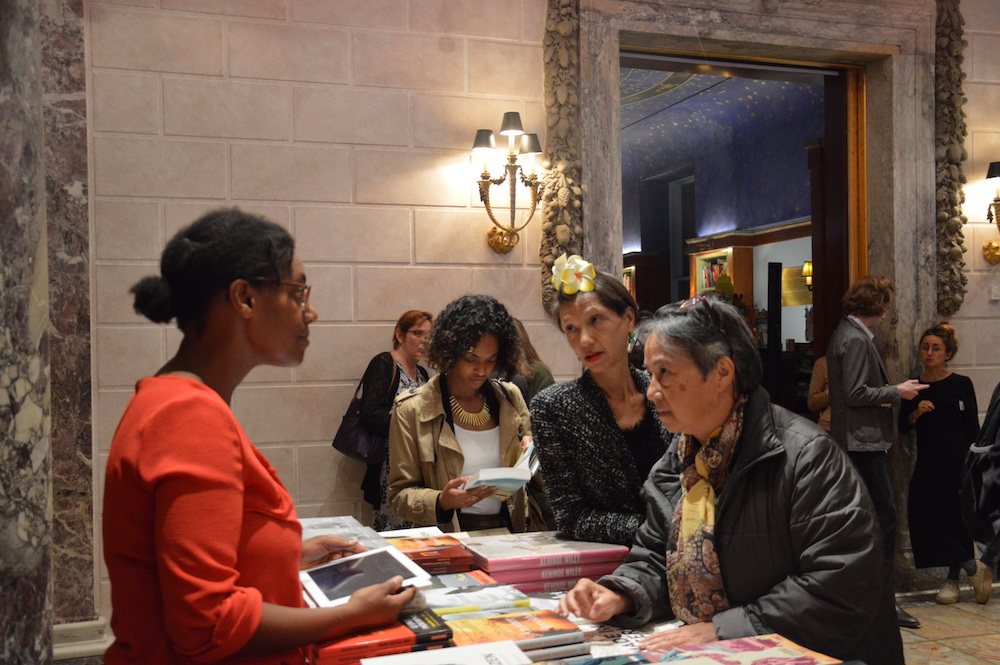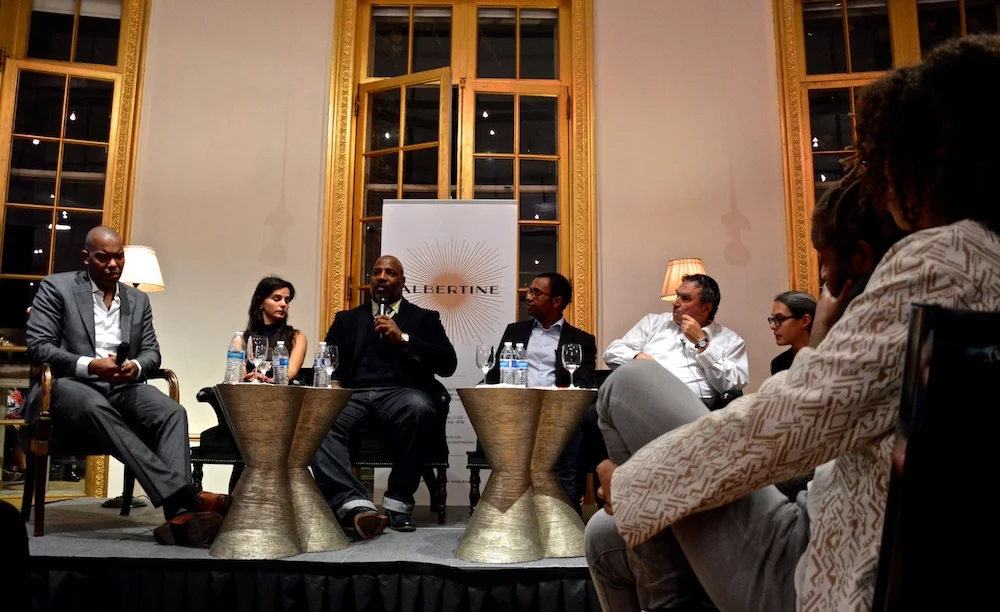FESTIVAL ALBERTINE: DAY ONE
/By Prune Perromat, Cerise Marechaud, Emily Lever and Tricia Woodcome with special thanks to French Morning
The Inaugural Panel: “When Will France Have Its Barack Obama?”
"If you listen to Barack Obama in 2004, in the speech that launched his political career, he said, ‘There’s not a black America. There’s not a white America. There is the United States of America.’ That was a complete lie.” And with that comment, New Yorker columnist Jelani Cobb ended the first night of the third annual Festival Albertine with an apparent provocation.
Were the words that propelled the first African American president to the White House based on a false assumption? Isn’t dreaming of and longing for change a necessity in forcing major and necessary disruption in societies defined by inequality? For about an hour-and-a-half on Thursday night in New York, panelists aired their views on the Obama presidency and how it came to be, and the possibility of it happening in a very different society - in the old, European nation of France.
Moderated by Ta-Nehisi Coates, the acclaimed author of Between the World and Me, the inaugural panel took place at the Albertine Bookstore in Manhattan in an outpost of the French Embassy. It featured journalists Cobb, Iris Deroeux (Mediapart), sociologist Pap Ndiaye (Sciences Po), and historian Benjamin Stora.
Even as the panelists began their exchange about ideas about race – and to a certain point, class – in France and in America, New Yorkers keen to hear the confab were lined up on Fifth Avenue waiting to get the packed French-American bookstore.
Days before the presidential election, as tensions in America and Europe about race, identity and immigration continue to rise, never has the need for informed, measured voices been so strong.
Here's our wrap of Day One at Festival Albertine.
BARACK OBAMA: THE INFLUENCE IN FRANCE AND AMERICA
Obama: A wake-up call for France?
PAP NYDIAYE
- "A lot of people think [race] is not an issue in France," but the election of Obama helped finally bring race to the fore."
- "Why should [there be] a French Obama? Many French people will tell you that this does not matter...that France is colorblind."
Obama and the myth of post-racialism
JELANI COBB:
"What generations of African Americans and African American leaders have tried to point to is the idea of (…) there being a common mutual interest that superseded this idea of race. And so we’ve seen these kind of both of those poles in the last 8 years. When you listen to Barack Obama in 2004, the speech that launched his political career, he said, 'There’s not a black America. There’s not a white America. There is the United States of America.' That was a complete lie, alright? Total lie. But as political rhetoric, it was fascinating because what he was actually doing was appealing to the idea that people could transcend this. That there was this conception of America that could be not beholden or shackled to the idea of one category of people being at the bottom."
American politics' influence on French
BENJAMIN STORA
"American racial identity politics both idealized by the French and used as a way of distancing itself from its own racial politics."
THE DIFFERENT FATES OF CIVIL RIGHTS MOVEMENTS
BENJAMIN STORA
"Unlike in the US, the French fight for civil rights ended in defeat, and in the government turning against antiracism."
A fight carried out by different people in France and the US
BENJAMIN STORA (TRANSLATED AND PARAPHRASED FROM FRENCH)
- In the US, the fight for civil rights was (carried out by African Americans) in the 1960s.
- In France, the fight for civil rights was carried out by the descendants of Algerian immigrants in the 1980s
- And the big difference is that in the United States, this fight ends up leading to some progress, whereas in France, the French fight for civil rights in the 1980s ended in defeat and a destruction of the antiracist movement, with the government turning against antiracism.
AFTER THE PANEL
In line with his comments during the discussion, journalist Jelani Cobb told LSP, “In the United States, there is a longing for reconciliation, even if it’s a kind of cheap and easy reconciliation. Americans want to be able to say this is not a racist country.”
A READING WITH JELANI COBB
Below, listen to an exclusive audio recording of Cobb reading an excerpt from his book, The Devil and Dave Chapelle: And Other Essays.
GALLERY



